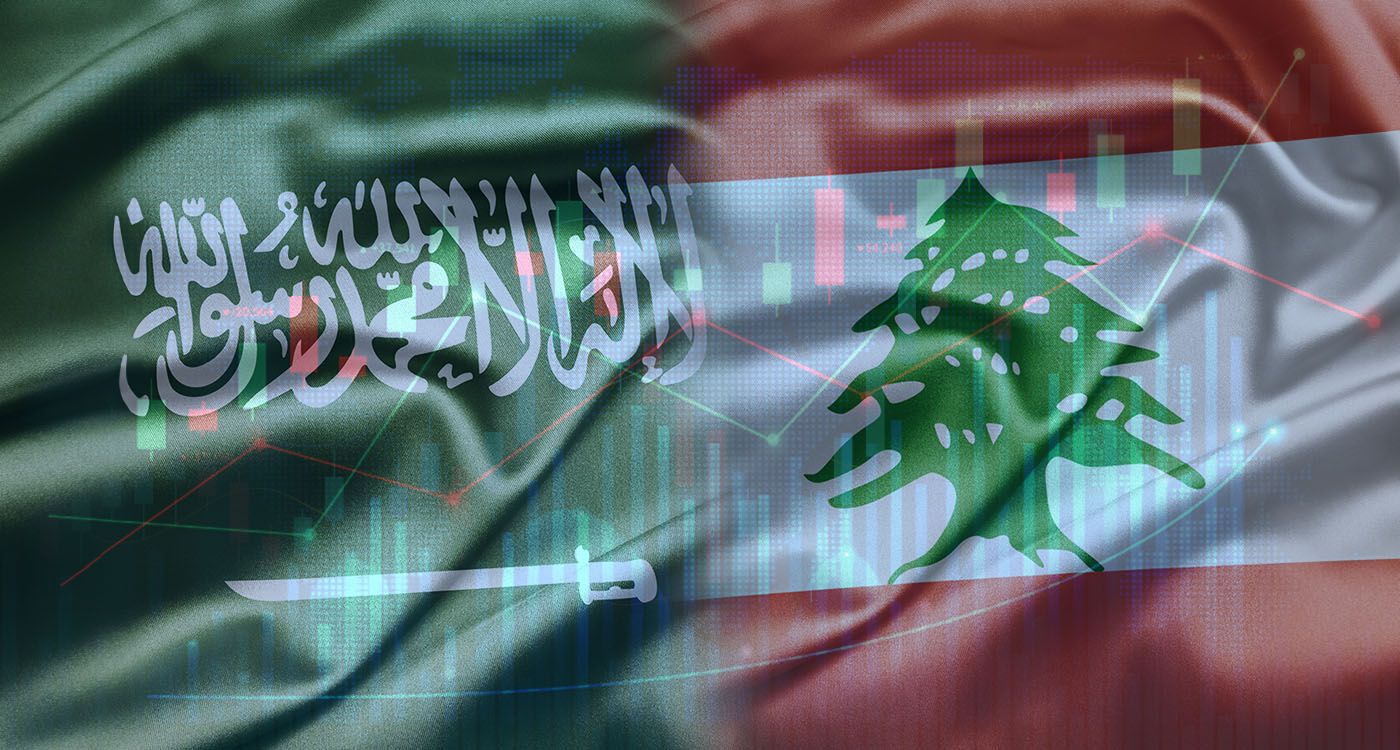
Trade between Lebanon and Saudi Arabia once flourished, with annual exports surpassing $800 million and imports nearing $1.3 billion. However, political tensions have significantly reduced bilateral exchanges, leading to a dramatic drop in trade and substantial revenue losses for Lebanon. With the election of General Joseph Aoun as President, could this signal a fresh start in their economic relations?
Saudi Arabia has traditionally been a key economic partner for Lebanon. Before the 2021 decline in relations, largely driven by the Hezbollah issue, Lebanese exports to the Kingdom were substantial, particularly in agriculture, food products, textiles, and handicrafts. These exports were a vital source of foreign currency for Lebanon's economy. Following recent positive developments in Lebanon, there is optimism for a recovery in trade relations, paving the way for the gradual reopening of import and export channels. “This would represent a significant leap forward for Lebanese exports to Saudi Arabia,” said Mohammad Abou Haidar, Director General of the Ministry of Economy, in an interview with This is Beirut.
Profitable Trade Relations
Abou Haidar revealed that Saudi Arabia accounted for roughly 10% of Lebanon's total exports, with an annual trade volume nearing $618 million. In 2015, Lebanon's exports to Saudi Arabia stood at $377.45 million. By 2020, this figure had surpassed $245 million, only to drop to $123.9 million in 2022. As for imports, Lebanon brought in $379.96 million worth of goods from Saudi Arabia in 2015, peaking at around $440 million in 2013, and then falling to $309.98 million in 2022.
Notably, Lebanon’s imports from Saudi Arabia have generally exceeded exports, with the exception of 2020. Abou Haidar emphasized that the Ministry is working on boosting Lebanese exports. In 2021, Lebanon's main exports to Saudi Arabia included essential oils, cosmetics, and perfumes (11%), vegetables and fruits (8%), chocolate and chocolate products (7%), pearls (6%), and furniture, beds, and mattresses (11%). However, by 2022, Lebanon's exports had diversified, with books and newspapers making up 68% of total exports to the Kingdom.
Regarding imports from Saudi Arabia, the majority consisted of mineral fuels, accounting for 43% of the total in 2022, followed by plastic products (26%). The share of pharmaceutical imports decreased from 8% in 2021 to 3% in 2022. “At its peak in 2014, trade between Lebanon and Saudi Arabia reached approximately $760 million,” noted Abou Haidar.
Abou Haidar emphasized, “In the past two years, a strong foundation has been established for a series of agreements between Lebanon and the Kingdom.” These agreements span a wide range of sectors, including the economy, development, trade, exhibitions, industry, investment, environment, defense, military cooperation, civil aviation, counter-terrorism and its financing, tax evasion prevention, customs, along with land and maritime transport. The main goal of these agreements is to support Lebanon’s development efforts, guiding it toward becoming a developed nation.
He further noted that the signing and announcement of these agreements will greatly enhance confidence in Lebanon, providing a substantial boost to the economy by attracting foreign investments, as Saudi Arabia serves as “a gateway and economic corridor to various Arab and international markets.” “Moreover, the tourism sector is set to recover with the return of Saudi visitors to Lebanon,” added Abou Haidar.
Diplomatic Break in 2021
In late 2021, relations between Lebanon and Saudi Arabia soured following remarks by then-Minister of Information Georges Cordahi, who criticized Saudi Arabia's involvement in the Yemen war. In response, Saudi Arabia suspended all imports from Lebanon amid the country’s severe political and economic crisis. The Kingdom, frustrated by Hezbollah's “influence in Lebanon's political sphere” and “the Lebanese leadership's failure to enact the required reforms,” saw little reason to maintain ties. Further complications arose when Saudi authorities intercepted shipments of Captagon pills hidden in Lebanese agricultural exports, adding strain to the bilateral trade relationship.
Longstanding Saudi Support for Lebanon
Historically, Saudi Arabia has been a key partner and supporter of Lebanon, notably in the energy sector by supplying essential oil. The Kingdom has also been a significant investor in Lebanon, particularly in the real estate and banking sectors, and its financial transfers have provided crucial support to many Lebanese families. Furthermore, Saudi Arabia has made substantial financial contributions to Lebanon, including loans and grants aimed at strengthening its economy and institutions.
The diplomatic rupture led to a series of actions that severely impacted Lebanon’s economy. Riyad suspended a $3 billion military aid package to the Lebanese Army, and Saudi investments in Lebanon sharply diminished. Numerous infrastructure projects supported by the Kingdom were suspended, and the number of Saudi tourists visiting Lebanon plummeted, further deepening the country's economic struggles.
As Lebanon works to recover from its economic crisis, the normalization of relations with Saudi Arabia could play a pivotal role in its economic recovery.




Comments